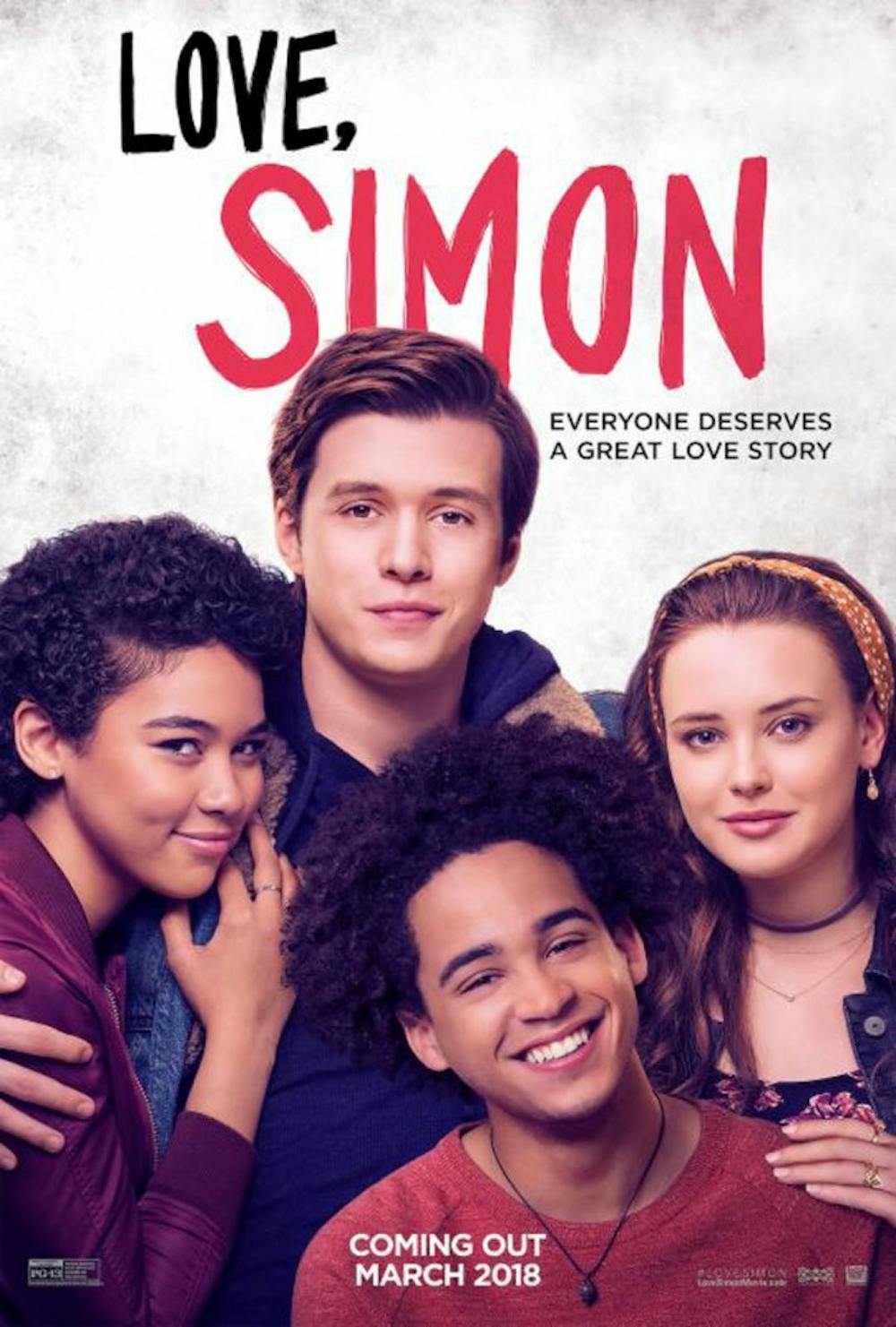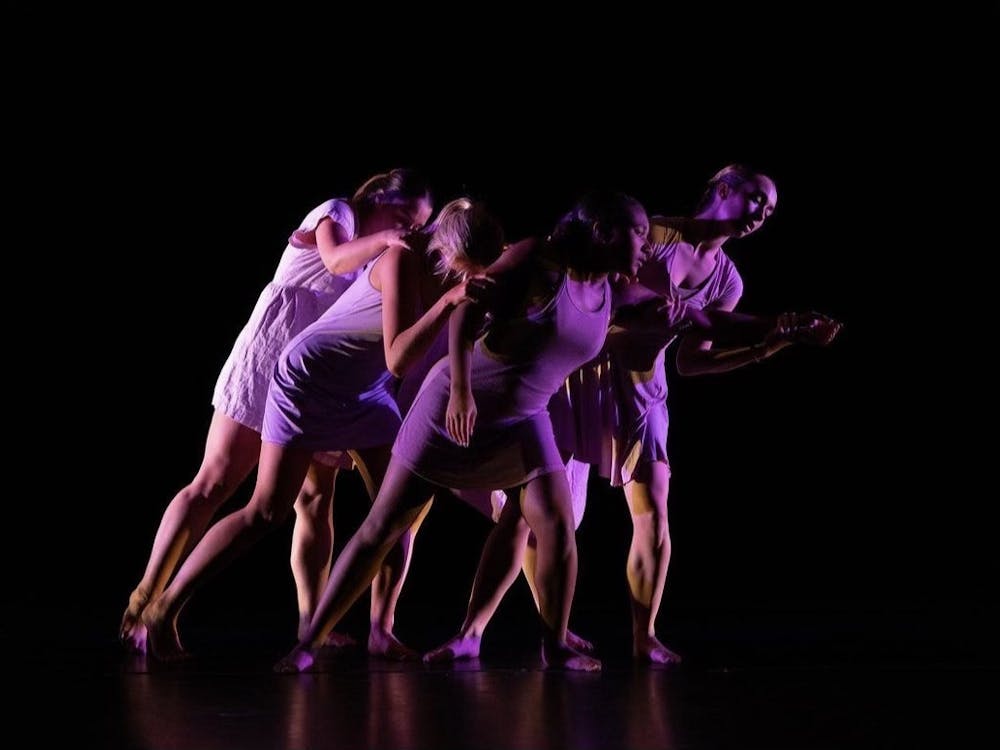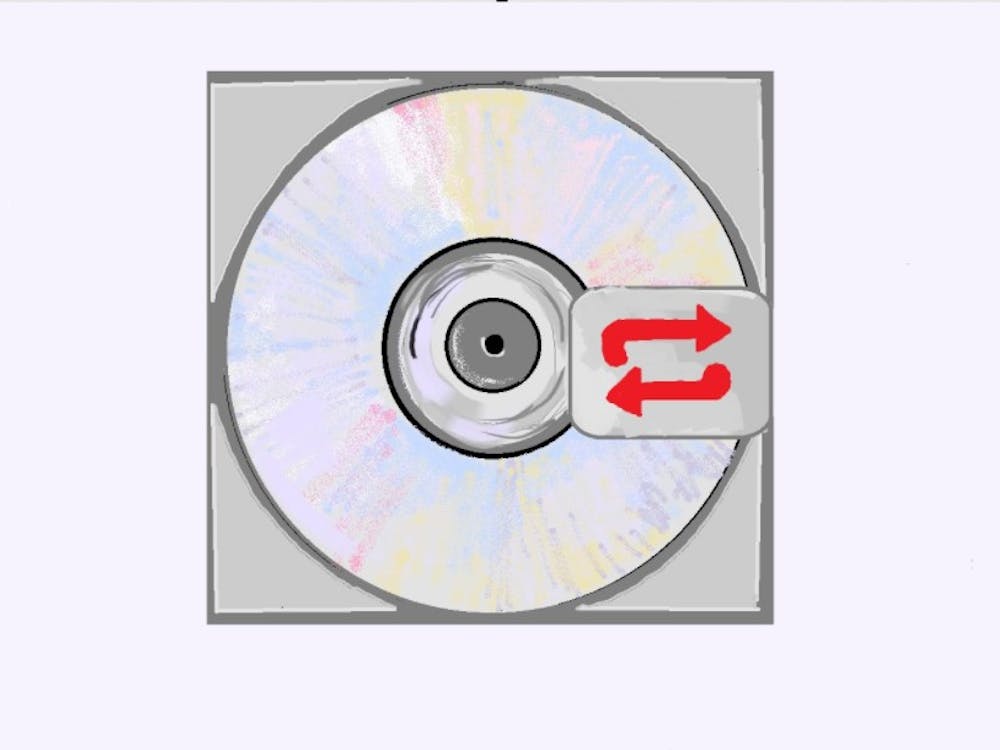While sitting in the reclining seats of a movie theater on a random Monday night and indulging in the fancy culinary offerings of the Charlottesville Alamo Drafthouse Cinema — bacon cheese fries — it’s easy to escape the academic and social worries that typically run through a student’s head during the school week. “Love, Simon” is a movie that accomplishes the impressive feat of helping one forget real life for two hours by immersing viewers into its fictional setting.
“Love, Simon” tells the story of Simon (Nick Robinson), a high school boy, who struggles internally with secretly being gay. He has a solid group of friends and a supportive family. Simon begins communicating over email with “Blue,” a boy from his high school who is also secretly gay, which he finds out by seeing his anonymous post on their school’s social media gossip platform. Simon deeply relates to Blue’s post, which states that keeping his sexuality a secret is taking an emotional toll. Simon reaches out to him, and they form a relationship based on their similar situations. Both Simon and Blue find solace in talking to each other about the difficult process of coming out to their families and friends, pondering how their loved ones will react to them being gay. Simon speculates who this seemingly perfect counterpart could be, internally picturing Blue as many different men that he interacts with throughout the movie. Simon eventually declares that he is in love with this boy, although he has never met him in person — but hey, this is the 21st century.
It’d be easy to assume that this movie would be the average, unimpressive and John Green-esque romantic dramedy that exhibits the potential for a brief emotional awakening at the end but doesn’t actually pull it off. Initially, “Love, Simon” seemed like it was trying to avoid being cliché in the most cliché way possible, except for one unusual detail that differentiated it from the majority of teen movies — the protagonist was gay! It’s refreshing to see a movie that deviates from the mile-high pile of storylines based on heteronormative high school coming-of-age experiences. As the plot thickened, “Love, Simon” drew the audience in with its intriguing mix of comedic moments and meaningful emotional struggles among the characters.
One word that could describe this movie is “intentional.” “Love, Simon” is intentional in the way its writers choose to portray how prevalent gender norms are and how that makes coming out difficult. Simon’s dad makes an obscene amount of sex jokes about women to Simon throughout the movie, something the screenwriters strategically did to highlight the difficulty of being gay in a society that assumes everyone is straight unless they are told otherwise. One of the most iconic scenes is when Simon imagines all of his straight friends “coming out” to their families. The camera zeroes in on all of them anxiously announcing to their parents “I’m straight.” Some of the parents then burst into tears. The scene is particularly powerful because it recognizes how society makes it an abnormality to be gay — and although today being gay has become largely accepted in mainstream culture, homosexuality is still manipulated into something that completely changes how one’s family and friends perceive them. The fear of his relationships inevitably changing is what holds Simon back from coming out. Why is it that only those who are attracted to the same sex are pressured to make some sort of announcement about their sexual identity?
The creators of “Love, Simon” could have fallen victim to perpetuating stereotypes about what it is like to be a gay man in high school. They could have made Simon a hyper-feminine kid with a high-pitched voice and a squad of girlfriends. But they didn’t. Simon is portrayed as an average high school boy instead of as the feminine gay best friend. By portraying both Simon and his love interest as masculine figures, “Love, Simon” successfully disputes the stereotype that in a gay relationship, each person must take on either a masculine or feminine role. The movie steers clear from solely portraying this binary and attempts to normalize being gay, and it should be recommended to anybody who enjoys a refreshingly different love story.





